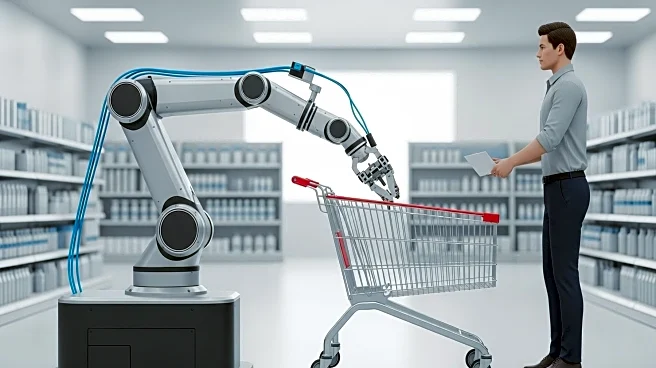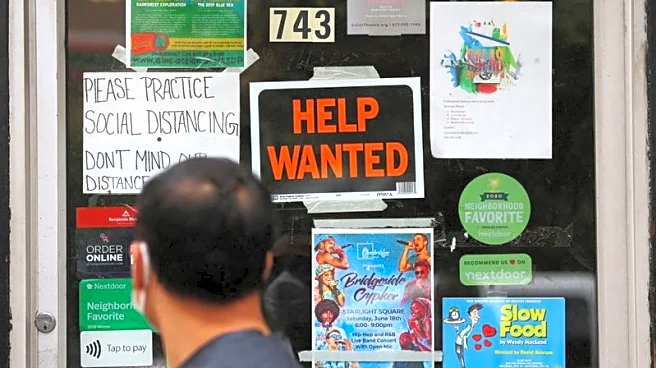What's Happening?
Walmart, the largest employer in the United States, is projected to maintain a stagnant workforce over the next two to five years, despite an anticipated increase in business volume. This announcement was made by Walmart US President John Furner during a recent conference. The decision is influenced by the growing role of technology, particularly artificial intelligence (AI), in the company's workforce strategy. CEO Doug McMillon emphasized the transformative impact of AI, suggesting that it will alter nearly every job within the company. To spearhead this technological shift, Walmart has appointed Daniel Danker as the executive vice president of AI acceleration, product, and design.
Why It's Important?
The decision to keep Walmart's workforce stagnant while integrating AI technologies is significant for several reasons. It reflects a broader trend in the retail industry where automation and AI are increasingly used to enhance efficiency and reduce labor costs. This move could set a precedent for other major retailers, potentially leading to widespread changes in employment practices across the sector. While AI can improve operational efficiency, it may also lead to job displacement, affecting thousands of workers. The integration of AI into Walmart's operations could also influence consumer experiences, as AI-driven solutions are expected to streamline shopping processes and improve service delivery.
What's Next?
As Walmart continues to integrate AI into its operations, the company may face scrutiny from labor groups and policymakers concerned about job security and the ethical implications of automation. The appointment of Daniel Danker to lead AI initiatives suggests that Walmart is committed to advancing its technological capabilities. Stakeholders will likely monitor how these changes impact employee roles and customer interactions. Additionally, Walmart's approach may prompt discussions on the need for retraining programs to equip workers with skills relevant to an AI-driven workplace.
Beyond the Headlines
The integration of AI into Walmart's workforce strategy raises ethical considerations regarding the balance between technological advancement and job preservation. As AI becomes more prevalent, companies may need to address the potential for increased inequality and the digital divide. Furthermore, the reliance on AI could lead to privacy concerns, as data-driven technologies often require extensive data collection and analysis.












